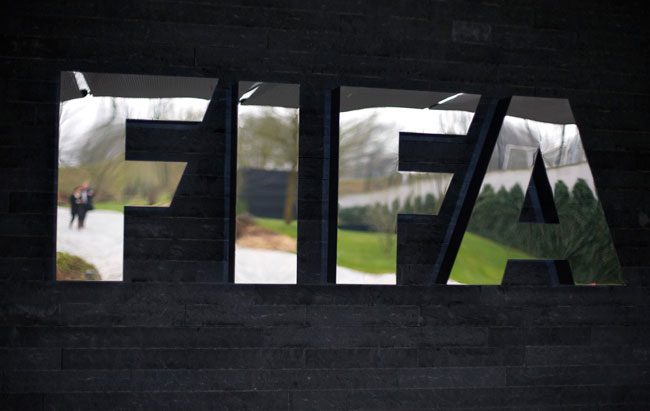Warring ethics bosses Hans-Joachim Eckert and Michael Garcia are to meet to thrash out their differences over the World Cup scandal investigation.
American attorney Garcia spent two years delving into the murky events surrounding the awards of the World Cup to Russia in 2018 and to Qatar in 2022.
He and assistant Cornel Borbely, despite a lack of cooperation from various quarters, then produced a 420-age report which ethics judge Eckert boiled down to a 42-page summary clearing all the main players of corruption allegations.
Three hours later, on Thursday, Garcia attacked Eckert’s work as “erroneous” as regard both fact and conclusions. Garcia’s omission of any specific issue meant that the entire report had been undermined in the most effective way possible.
Eckert told the BBC he was “surprised” by Garcia’s public attack, adding: “I’m a long time in the job here. I don’t think much surprises me. A lot of my report was word for word from the Garcia report.”
He reiterated his earlier refusal to consider publication in full of the Garcia report and, in so doing, demonstrated a chasm between American and European judicial cultures.
Eckert said: “I don’t think [publication] is possible because I have to respect the rights of confidentiality. Maybe it’s another thing in the US but in [European] continental law I can’t do it – and I can’t do it even according to the FIFA code of ethics. I will not do it.”
One suggestion is that Eckert was particularly vague in some instances to hand Garcia total freedom over bringing disciplinary charges against even some leading figures within the world game.
Thursday’s events prompted renewed demands for full publication of the Garcia report from exco members Jeff Webb and Sunil Gulati as well as from former FIFA reform consultant Mark Pieth.
They also prompted a suggestion from German league president Reinhard Rauball that European federation UEFA might have to consider breaking away from FIFA.
Rauball, 67, told German magazine Kicker: “This was a serious attempt to examine in detail how the World Cups were awarded to Russia and Qatar. But the result has been a communications meltdown and shaken the foundations of FIFA in a way I have never seen before.
“Two things are essential: the full outcome of the Ethics Committee process must be published as soon as possible but so must the investigatory report of Mr Garcia to make it clear what was recommended and how it has been treated.
“Also, we need to know what has been left out. That has to be made public. It’s the only way FIFA can confront the way it has completely lost credibility.”
Anything less than clarity and publication of the Garcia report steps and Rauball had no doubt about the next step.
He said: “If all of that does not happen and this crisis is not resolved in a credible manner . . . then one option, which would have to be thought about seriously, is whether UEFA should step out of FIFA.”







